#Prince Alexander of Battenberg
Explore tagged Tumblr posts
Text

#colorization#colorized photo#victorian#colorized#1890s#Princess Beatrice#Prince Alexander of Battenberg#Prince Maurice of Battenberg#Prince Leopold of Battenberg#Princess Ena of Battenberg
8 notes
·
View notes
Photo
🥺❤

#princess beatrice of battenberg#prince maurice of battenberg#prince leopold of battenberg#prince alexander of battenberg#coronation 1911
141 notes
·
View notes
Text

Victoria-1886
#Queen Victoria#British Royal Family#Prince Alexander#UK#Battenberg#House of Hanover#Princess Beatrice#monarchy#royal birth#christening#Buckingham Palace#19th century#Victorian era#British Empire#Grandmother of Europe#1886
14 notes
·
View notes
Text

The focus of the photograph for me is the Empress María Alexandrovna. I am always looking for pictures of her, as she is described as beautiful when young. I can see indications of that in pictures such as this one, but I am also beginning to understand why it might have been that many mistook her shyness for coldness and aloofness.
On the photograph from left to right: Julie, Princess of Battenberg; Elizabeth of Prussia, Princess and Prince Carl of Hesse, Prince Wilhelmina of Hesse, Empress Marie Alexandrovna, Prince Louis of Hesse; Prince Gustav Vasa from Sweden; Princess Alice of Hesse and Prince Alexander of Hesse
#romanov family#romanov dynasty#vintage photography#Empress Maria Alexandrovna#Julie Princess of Battenberg#Elizabeth of Prussia#Princess Carl of Hesse#Prince Carl of Hesse#Prince Louis of Hesse#Prince Carl Vasa of Sweden#Princess Alice of Hesse#Prince Alexander of Hesse
16 notes
·
View notes
Text

Mausoleum of Prince Alexander of Battenberg in Sofia, Bulgaria
Bulgarian vintage postcard
#sofia#historic#bulgaria#alexander#photography#postal#ansichtskarte#battenberg#photo#sepia#vintage#postcard#mausoleum#briefkaart#prince#postkarte#tarjeta#carte postale#ephemera#bulgarian#postkaart
1 note
·
View note
Text






Royal Deaths in History: 19th September
1339 - Go-Daigo, 96th Emperor of Japan.
1356 - Peter I, Duke of Bourbon, killed at the Battle of Poitiers.
1785 - Maria Antonia Ferdinanda of Spain, Queen of Sardinia, consort to Vittorio Amadeo III.
1802 - Luisa of Naples and Sicily, first wife of Ferdinando Ill, Grand Duke of Tuscany.
1895 - Countess Julia Hauke, Princess of Battenberg, morganatic wife of Prince Alexander of Hesse and by Rhine.
1902 - Marie Henriette, Queen of the Belgians, consort to King Leopold II.
11 notes
·
View notes
Note
If I'm not mistaken, empress Maria Alexandrovna's brother was infatuated with Grand Duchess Olga Nikolaevna, but emperor Nicholas I did not want such a marriage to happen. Instead, he proposed a marriage with Grand Duchess Ekaterina Mikhailovna, but he demurred. What did Ekaterina think about this? Thx u!
Hi! Nope, you are not mistaken—Prince Alexander of Hesse fancied himself in love with Grand Duchess Olga. She did flirt with him quite a bit, but she knew her father did not approve, and she sort of led Alexander on a little. Because her two sisters had married relatively insignificant royal partners, Nicholas was eager to see Olga make a dynastic marriage, and Alexander of Hesse was not what he had in mind. He did suggest his niece, Grand Duchess Ekaterina Mikhailovna, as an alternative, but Alexander had no interest in marrying a woman he didn’t love; what’s more, Ekaterina’s father, Grand Duke Mikhail Pavlovich, disliked the future Empress Maria Alexandrovna, and his dislike extended to her younger brother as well, so even if the young prince hadn’t demurred, it’s unlikely that the marriage would have happened. We don’t know much about what Ekaterina herself thought of the situation, but from what I understand, she was in no hurry to marry, and she had already refused the hand of another German prince. Ultimately, she married Duke Georg of Mecklenburg-Strelitz, and interestingly, the couple made their home in St. Petersburg. Prince Alexander later fell in love with Countess Julia von Hauke, maid of honor to his sister, much to the displeasure of Nicholas I; he and Julia left Russia, and by the time they were able to wed, she was already six months pregnant. Her husband’s brother, the Grand Duke of Hesse, gave her the title of Princess of Battenberg, and as such, the current Mountbattens are her descendants.
15 notes
·
View notes
Text
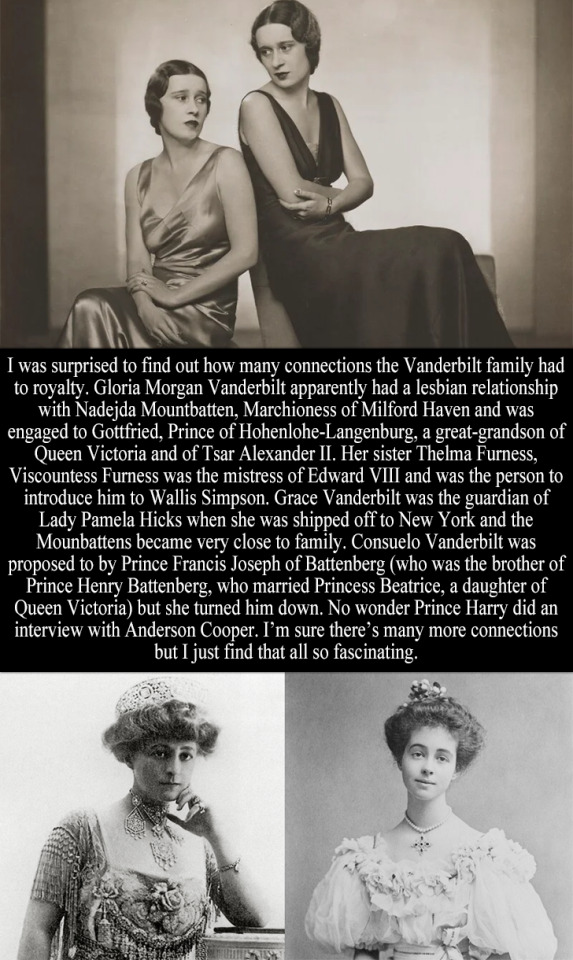
“I was surprised to find out how many connections the Vanderbilt family had to royalty. Gloria Morgan Vanderbilt apparently had a lesbian relationship with Nadejda Mountbatten, Marchioness of Milford Haven and was engaged to Gottfried, Prince of Hohenlohe-Langenburg, a great-grandson of Queen Victoria and of Tsar Alexander II. Her sister Thelma Furness, Viscountess Furness was the mistress of Edward VIII and was the person to introduce him to Wallis Simpson. Grace Vanderbilt was the guardian of Lady Pamela Hicks when she was shipped off to New York and the Mounbattens became very close to family. Consuelo Vanderbilt was proposed to by Prince Francis Joseph of Battenberg (who was the brother of Prince Henry Battenberg, who married Princess Beatrice, a daughter of Queen Victoria) but she turned him down. No wonder Prince Harry did an interview with Anderson Cooper 😅. I’m sure there’s many more connections but I just find that all so fascinating.” - Submitted by Anonymous
33 notes
·
View notes
Text
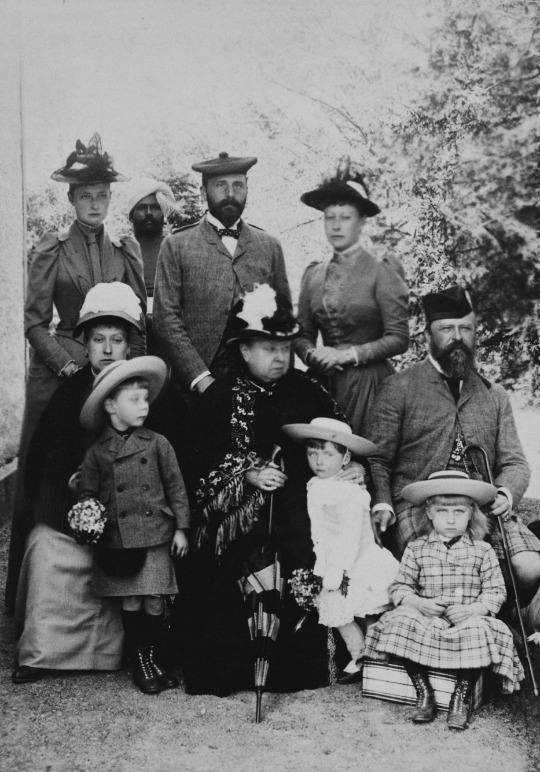
Queen Victoria with her daughter Princess Beatrice, Princess Henry of Battenberg and her in-laws Grand Duke Louis of Hesse and Prince Henry of Battenberg and her grandchildren Victoria, Princess Ludwig of Battenberg, Alix of Hesse, Princess Victoria Eugenie, Prince Alexander and Prince Leopold of Battenberg 1891.
#queen victoria#princess beatrice#louis of hesse#henry of battenberg#victoria of battenberg#alix of hesse#Victoria eugenie#Alexander of Battenberg#leopold of Battenberg#alexandra feodorovna#victoria of hesse#british empire#1890s
19 notes
·
View notes
Note
Who do you think would have had the highest chance of suitor for OTMAA? (Pre-revolution and war) as well as (after revo if they survived).
Olga nikolaevna= Princes Vladimir Paley or Grand duke dmitri pavlovich romanov (there are some who thinks paley might have been).
Tatiana Nikolaevna= Prince Alexander of Yugoslvia or Prince Roman petrovich(idk about roman petrovich but from what I read he was mostly mentioned)
Maria= Prince Carol of Romania or Prince Louis Mountbatten( carol said he liked her at some point)
Anastasia= Princes Frederick of Denmark or Prince Paul of Greece and Denmark(Tbh, I feel like she would chose herself heheh)
Alexei= Princess Ileana of Romania or Princess Elizabeth of Greece and Denmark.
Olga - I think Dmitri would have been 10000% off the table after the Rasputin murder, so between the two of them Vladimir Paley might be the more likely. He's two years younger than her and from a morganatic marriage, but Dmitri being involved with Rasputin's murder means it's just not going to happen. Pre or post revolution wouldn't matter much. Pre-Rasputin's murder though, Dmitri probably had higher chances.
Tatiana - probably Alexander of Serbia/Yugoslavia, but I think it comes down to if Tatiana thinks her duty is to Russia (in which case a marriage to a King is a way to solidify an alliance), or to her mother (in which case she might rather marry Roman, stay in Russia, and remain a confidante and helper to Alix). I do think she's the most suited to be a queen consort of the four. Post-revolution Roman's chances might be better, but if Alexander was in love with her than her not technically being a 'grand duchess' anymore probably wouldn't matter to him.
Maria - Pre revolution, probably Carol as much as it pains me to say. He's awful, but she was young and naive (like Sitta was) and if he turned on the charm and swept her off her feet she might fall for it at first. Plus, as I've said before, Dickie as a first cousin is a big no-no for Nicholas II/the Church, plus he's 'just' a Prince of Battenberg/Lord Mountbatten, technically it's an unequal marriage (like Olga and Prince Paley would technically be). Post-revolution I think Dickie stands a better chance because equal marriages are less important. First cousin thing is still a problem, though.
Anastasia - assuming she doesn't have any strong romantic feelings for either, Paul might be the more likely because he's at least Orthodox. I don't know that the Danes would make her change her religion, but it would still be lonely being a different religion than her husband and kids. With Paul they'd all be Orthodox. And I know Olga and Sitta at least exchanged letters, so Anastasia might know these cousins at least a little bit better than Frederik? I don't think the revolution would be much of a factor, although it might make her a less attractive option to Frederik.
Alexei - I'm Team Elizabeth (or really Team Any of Elena Vladimirovna's Daughters) all the way. She's closer in age to him, has stronger Russian connections than Ileana, was friendly with him and his sisters in his childhood, met him more than once, spent time in Russia with her relatives . . . it just makes so much sense in my head. Greece had the same revolution problems as Russia so it wouldn't matter here.
19 notes
·
View notes
Text
Such was the rebirth of modern Bulgaria, the youngest independent state, with the exception of Albania, in the Balkan Peninsula. It was composed, for the greater part, of hardy peasants recently emancipated from the Turkish yoke, when the election that secured Alexander of Battenberg as Prince of Bulgaria took place in 1879. His reign of six years was marked by a great increase of territory to the nation in the acquirement of Eastern Roumelia, and the war with Serbia, in which the Bulgarians showed their mettle as fighters, and their confidence in their self- chosen Prince, seemed to afford some hope of sustained national development. But misfortune dogged the

Gordon, W., Dodd, M. & Company. (1916).A woman in the Balkans. New York: Dodd, Mead & Company.
0 notes
Text
instagram
Sofia, Bulgaria - National Art Gallery (09/2023) (Национална художествена галерия, Natsionalna hudozhestvena galeriya)
Sandro – Prince Alexander von Battenberg, a European Destiny
—— Camera : Canon EOS R6 mark ii Lens : Canon RF 16mm f/2.8 STM Edit : #madewithlightroom —— #nationalgallerybg #sofia #bulgarıa #art #artgallery
1 note
·
View note
Photo

Urged on by Austro Hungary
Urged on by Austro-Hungary, King Milan of Serbia declared war on Bulgaria, on the pretext that the political equilibrium of the Balkan Peninsula had been upset. The authorities in Athens also feared that it would be easier for Bulgaria, in its extended and powerful version, to have its claims on Macedonia – contested by all three states – honored. In November 1885 the Serbian troops violated the Bulgarian western border. But a quick and unexpected turn in the war followed and provided King Milan with a total defeat. As the Bulgarian forces put to flight the Serbian army and headed north-west on Serbian territory Vienna sent its message: either the Bulgarians should stop and go back or they would be at war with Austro-Hungary as well. So in February 1886 the Treaty of Bucharest recognized the unification of the two Bulgarian states.
But Emperor Alexander III refused to support the Unification. To Battenberg he was the worst enemy of Bulgaria. Those who shared the Prince’s sentiments – and came to be known as “Russophobes”- advised that the Bulgarian foreign policy should be orientated towards the Western states. The others, unconditional friends of the liberator Russia, with whom Bulgaria had a common religion Tours Bulgaria, formed the powerful and multitudinous trend of the “Russophiles”.
Strong political tension
The struggle between the two extreme trends quickly created a strong political tension. In the night of August 8lh and in the small hours of August 9lh 1886 a group of pro-Russian officers staged another coup d’etat, dethroned the Prince and sent him to Russia under escort. The reaction of the Russian emperor was swift and in a few days Alexander I was back on the throne but at the end of August he was compelled to abdicate. A three-member Council of Regents was elected, and Stambolov, as the leading figure, did his best so that the Grand National Assembly to reject the new Russian candidate for the Bulgarian throne, Prince Mingreli of Georgia. That put an end to the Russian influence and soon a Bulgarian delegation set off for the European capital cities in search of a new Prince…
0 notes
Text
Portraits of Romanovs (and Relations) by Nicholas Panagiotti Zarokilli
Nicholas Pannagiottis Zarokilli was born in Turkey in 1879. He was a painter particularly fond of creating pictures of beautiful women. From 1912 to 1920, Zarokilli produced paintings for publications like MoToR, Modern Priscilla, Women’s Home Companion, The Green Book, McCall’s, and The Saturday Evening Post.
He also designed World War I posters. The United States needed money for the war, so the artist created posters to try and encourage people to give for the cause.
Zarokilli was known well for his dry-point paintings. Drypoint is a printmaking technique of the intaglio family, in which an image is incised into a plate or "matrix" with a hard-pointed "needle" of sharp metal or diamond point. In principle, the method is practically identical to engraving.
He painted portraits for people such as the Queen of Spain, the Archbishop of Canterbury, Grand Duchess Anastasia, the King of Portugal, and Mr. and Mrs. Solomon Guggenheim. Landscapes were also his love, painting the cities of Venice, Madrid, and Seville.
The following is his rendering of several members of the Romanov family (and other relations.) I have seen some of these here and there before (several of you have them in your Tumblrs and always admired them; I think he captures the likenesses admirably. I found the ones here together and identified on the British Museum website (they were done between 1920 and 1922.)
These are the names of the easily recognizable "personages" in the paintings in the order they appear below:
Prince Felix Yusupof (wearing a suit)
Prince Felix Yusupof (head)
Princess Irina Alexandrovna
Grand Duke Alexander Mikhailovich (sitting)
Grand Duke Alexander Mikhailovich (bust)
Prince Andrei Alexandrovich
Prince Feodor Alexandrovich
Grand Duchess Anastasia Mikhailovna
Grand Duke Kyril Vladimirovich
Grand Duchess Maria Pavlovna the Younger
Queen Marie of Romania (born Princess Marie Alexandra Victoria of Edinburgh) - Granddaughter of Queen Victoria
Queen Victoria Eugenie of Spain (born Princess Victoria Eugenie Julia Ena of Battenberg (youngest granddaughter of Queen Victoria, Hessian Princess through the morganatic Battenberg line)



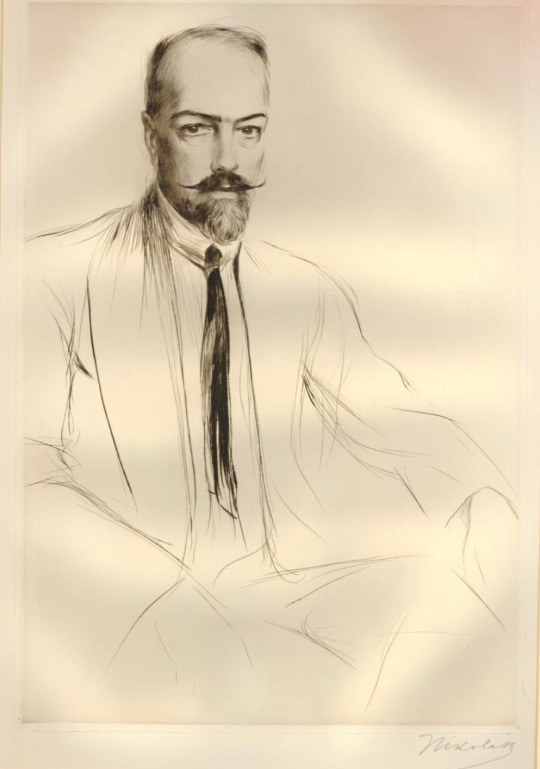
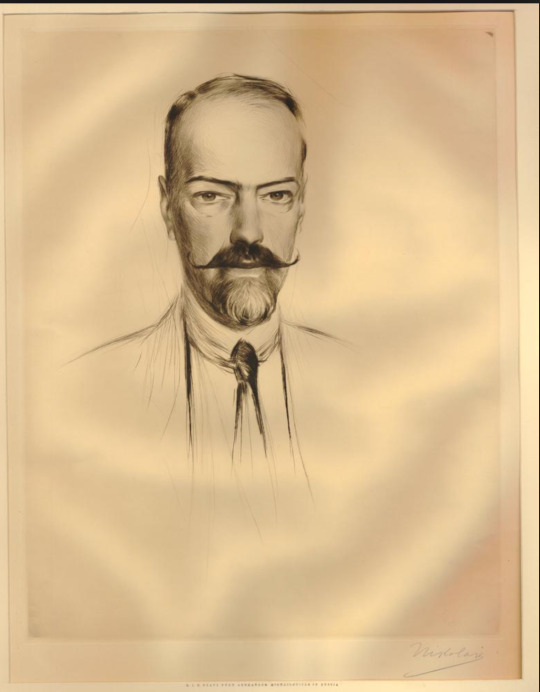

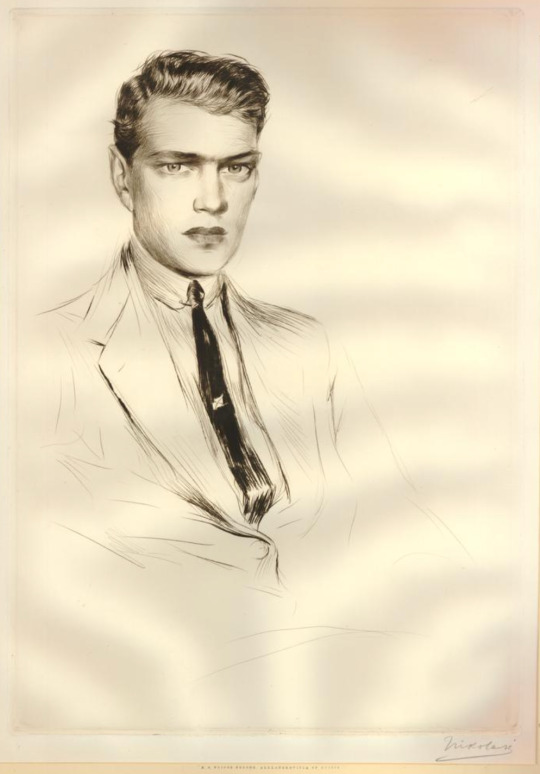


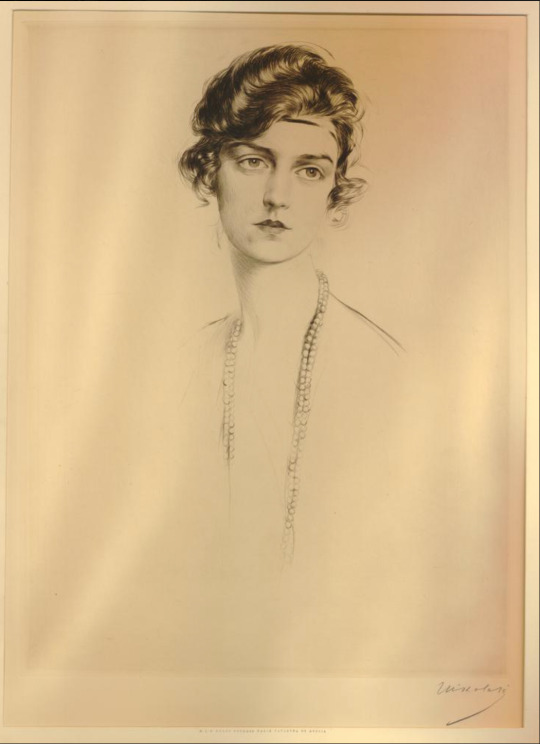

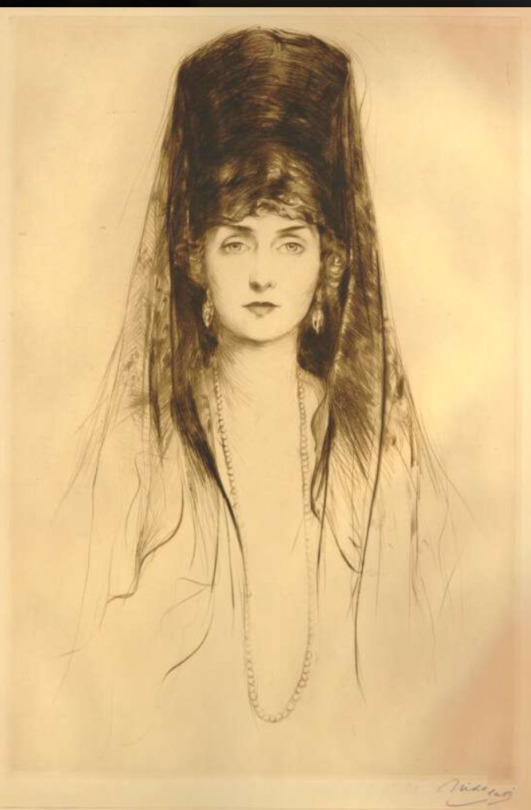
References
N.P. Zarokilli Archives | The Saturday Evening Post
Nicholas Panagiotti Zarokilli | British Museum
#Nicholas Panagiotti Zarokilli#Prince Felix Yusupov#Princess Irina Yusupov#Grand Duke Alexander Mikhailovich#Grand Duchess Anastasia Mikhailovna#Prince Andrei Alexandrovich#Prince Feodor Alexandrovich#Grand Duke Kyril Vladimirovich#Grand Duchess Maria Pavlovna the Younger#Queen Marie of Romania#Queen Victoria Eugenia of Spain#Romanov dynasty
39 notes
·
View notes
Photo

Urged on by Austro Hungary
Urged on by Austro-Hungary, King Milan of Serbia declared war on Bulgaria, on the pretext that the political equilibrium of the Balkan Peninsula had been upset. The authorities in Athens also feared that it would be easier for Bulgaria, in its extended and powerful version, to have its claims on Macedonia – contested by all three states – honored. In November 1885 the Serbian troops violated the Bulgarian western border. But a quick and unexpected turn in the war followed and provided King Milan with a total defeat. As the Bulgarian forces put to flight the Serbian army and headed north-west on Serbian territory Vienna sent its message: either the Bulgarians should stop and go back or they would be at war with Austro-Hungary as well. So in February 1886 the Treaty of Bucharest recognized the unification of the two Bulgarian states.
But Emperor Alexander III refused to support the Unification. To Battenberg he was the worst enemy of Bulgaria. Those who shared the Prince’s sentiments – and came to be known as “Russophobes”- advised that the Bulgarian foreign policy should be orientated towards the Western states. The others, unconditional friends of the liberator Russia, with whom Bulgaria had a common religion Tours Bulgaria, formed the powerful and multitudinous trend of the “Russophiles”.
Strong political tension
The struggle between the two extreme trends quickly created a strong political tension. In the night of August 8lh and in the small hours of August 9lh 1886 a group of pro-Russian officers staged another coup d’etat, dethroned the Prince and sent him to Russia under escort. The reaction of the Russian emperor was swift and in a few days Alexander I was back on the throne but at the end of August he was compelled to abdicate. A three-member Council of Regents was elected, and Stambolov, as the leading figure, did his best so that the Grand National Assembly to reject the new Russian candidate for the Bulgarian throne, Prince Mingreli of Georgia. That put an end to the Russian influence and soon a Bulgarian delegation set off for the European capital cities in search of a new Prince…
0 notes
Photo

Urged on by Austro Hungary
Urged on by Austro-Hungary, King Milan of Serbia declared war on Bulgaria, on the pretext that the political equilibrium of the Balkan Peninsula had been upset. The authorities in Athens also feared that it would be easier for Bulgaria, in its extended and powerful version, to have its claims on Macedonia – contested by all three states – honored. In November 1885 the Serbian troops violated the Bulgarian western border. But a quick and unexpected turn in the war followed and provided King Milan with a total defeat. As the Bulgarian forces put to flight the Serbian army and headed north-west on Serbian territory Vienna sent its message: either the Bulgarians should stop and go back or they would be at war with Austro-Hungary as well. So in February 1886 the Treaty of Bucharest recognized the unification of the two Bulgarian states.
But Emperor Alexander III refused to support the Unification. To Battenberg he was the worst enemy of Bulgaria. Those who shared the Prince’s sentiments – and came to be known as “Russophobes”- advised that the Bulgarian foreign policy should be orientated towards the Western states. The others, unconditional friends of the liberator Russia, with whom Bulgaria had a common religion Tours Bulgaria, formed the powerful and multitudinous trend of the “Russophiles”.
Strong political tension
The struggle between the two extreme trends quickly created a strong political tension. In the night of August 8lh and in the small hours of August 9lh 1886 a group of pro-Russian officers staged another coup d’etat, dethroned the Prince and sent him to Russia under escort. The reaction of the Russian emperor was swift and in a few days Alexander I was back on the throne but at the end of August he was compelled to abdicate. A three-member Council of Regents was elected, and Stambolov, as the leading figure, did his best so that the Grand National Assembly to reject the new Russian candidate for the Bulgarian throne, Prince Mingreli of Georgia. That put an end to the Russian influence and soon a Bulgarian delegation set off for the European capital cities in search of a new Prince…
0 notes